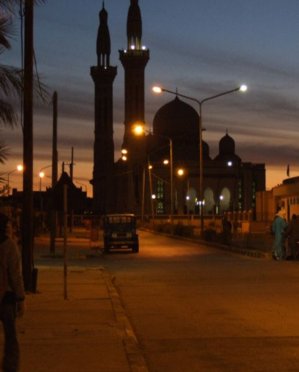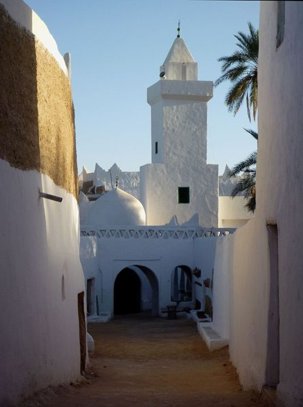|
Libya Politics Ghadames; first "liberated" town in south-west Libya
Libyan desert town Ghadames is located at the three-country border point with Tunisia and Algeria. The historic oasis town plays an important role in the oil industry of western Libya. The eastern Libyan oil producing areas are already in the hands of the revolution.
Ghadames, while officially part of the Tripolitania region, is culturally a part of the Fezzan region. The fall of Ghadames could be of great importance for other Fezzan oasis towns, which still are in firm control of the loayl Tariq brigade, which is based in the Sabha Oasis, the capital of the Fezzan. But the possible unrest in Ghadames could also pose a threat to the refugee stream out of Libya. During the last week, hundreds of Libyans and foreigners have fled the country through the Ghadames border, into Algeria. In particular Algerian citizens have made use of this escape route. Several hundred - maybe thousands - of foreigners are reported to be in Ghadames right now, pleading for their evacuation. According to Migrante International - a Filipino NGO - some 109 Filipino workers are among the many foreigners waiting for evacuation in Ghadames. Ghadames (also written Ghadamis) is an ancient oasis town dating back to the Roman period. The depopulated old town of Ghadames in 1976 was inscribed in the UNESCO World Heritage list and is among the most popular tourist destinations in Libya. There are no indications of fighting at this UNESCO site. By staff writers © afrol News - Create an e-mail alert for Libya news - Create an e-mail alert for Politics news
On the Afrol News front page now
|
front page
| news
| countries
| archive
| currencies
| news alerts login
| about afrol News
| contact
| advertise
| español
©
afrol News.
Reproducing or buying afrol News' articles.
You can contact us at mail@afrol.com









